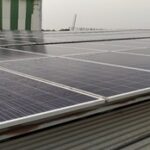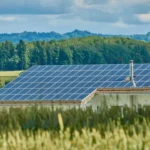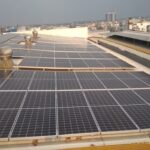Net Metering and its Advantages
Net Metering and its Advantages
Net metering is a system of control. Its purpose is to maintain checks and balances specifically for those who have solar heating panels on their roofs. It is also a net preserver of energy usage. This means that homeowners are in a position to monitor and control the amount of energy they use during the day or at night. Sometimes, when you’re away and solar energy is not being used, your home may generate extra electricity using solar energy.
You can buy some expensive batteries to store that extra energy to use at night but there’s another option to send extra power produced back to the grid and that’s what we call net metering.
Net metering allows solar energy customers to receive a credit for the electricity they generate. When you use solar panels to produce electricity at home, you may generate more power than your house needs during the day. If your home is equipped with net metering, you can export extra energy to the grid and get credits that can be used when you need them. Net metering ensures the energy you generate at home doesn’t go to waste.
According to SEIA (Solar Energy Industries Association), “Net metering allows residential and commercial customers who generate their own electricity from solar power to feed electricity they do not use back into the grid. Many states have passed net metering laws. In other states, utilities may offer net metering programs voluntarily or as a result of regulatory decisions.“
These are some features of Net Metering:-
- Consumers can generate their own energy at any time of the day
- Solar energy can be used even at night
- Energy not used in a month can be rolled over to be used in the next month
- Solar power can be used during winter months when there is little or no sunlight. For example, a Northern European region has very few sunlight and daylight hours during the summer. It is still possible to store solar power during winter months when there is no daylight at all.
Some advantages and disadvantages of Net Metering are as follows:-
Advantages of Net Metering
- Reduced electricity bills
- Benefits for the environment
- No need to install an expensive battery storage system
- Take some pressure off electric grids
- Encourages customers to move towards renewable energy
- Preserves natural energy resources
Disadvantages of Net Metering
In many parts of the world, governments or localized municipal authorities remain resistant to the net metering monitoring process because it impacts negatively their ability to collect revenue from tax and/or ratepayers. To compound matters, many developing nations where this problem is prevalent, they are still dealing with issues related to illegal connections in informal settlements.
- The revenue collected is not utilized effectively to provide housing for citizens living in informal settlements.
- Authorities remain resistant to consumers’ rights to power usage as needed.
- Because net metering systems are not fully regulated, it is not always easy for consumers to access these.
- By not allowing access, the costs of acquiring electricity remain excessive for consumers.
Net metering allows utility customers to generate their own electricity cleanly and efficiently. During the daytime, most solar panels produce more electricity for households or industries than they consume. Net metering allows them to export that power to the grid and reduce their future electric bills.
Net metering also provides substantial economic benefits in terms of jobs, income, and investment. Net metering increases the demand for solar energy, which in turn creates jobs for the installers, electricians, and manufacturers who work in the solar supply chain. Today, the solar industry employs more than 230,000 workers in the industry in large part due to strong state net metering policies which have allowed the solar industry to thrive.
Suggested Articles

Everything You Need to Know About Solar System Earthing
Power factor after solar installation often fluctuates due to system design and load patterns. Learn the key causes, challenges, and solutions for better efficiency.

How Are Solar PV Modules Made? Complete Guide to the Manufacturing Process
Choosing the right solar panels can be confusing with so many options in the market. This guide simplifies solar panel selection by comparing types, efficiency ratings, and cost factors. Whether for your home, business, or industry, learn how to make an informed decision and maximize the return on your solar investment.

Solar O&M Services: How to Ensure Peak Performance & Maximum Power for Solar System
Discover how Solar O&M services keep your solar system running at its best. From routine maintenance to performance monitoring, ensure maximum power and efficiency.

Renewable Energy Hits New Heights: 440 GW Capacity in 2023
Learn how global renewable energy capacity is set to surpass 440 GW in 2023, marking record growth and a major shift toward clean, sustainable power.

Difference Between Solar Power and Photovoltaic: Explained Simply
Total solar PV power represents the combined power output of a solar photovoltaic system. This guide explains its meaning, calculation, and how it directly impacts solar performance, efficiency, and long-term energy generation.

Rooftop Solar for Factories: Maximum kW You Can Install
Industrial rooftop solar guide: Understand KW capacity limits, installation guidelines, and best practices for factories and manufacturing units

Industrial Solar Plants with Diesel Generator Backup: What You Need to Know
Discover how industries can efficiently run rooftop solar plants alongside diesel generators (DG). Learn the benefits, setup tips, and hybrid system strategies to ensure uninterrupted power and maximize energy savings.

6 Innovative Applications of Solar Energy You Should Know About
Explore how solar energy is revolutionizing daily life and industries. From solar-powered transport to smart cities, discover six groundbreaking solar applications shaping a cleaner, smarter future.